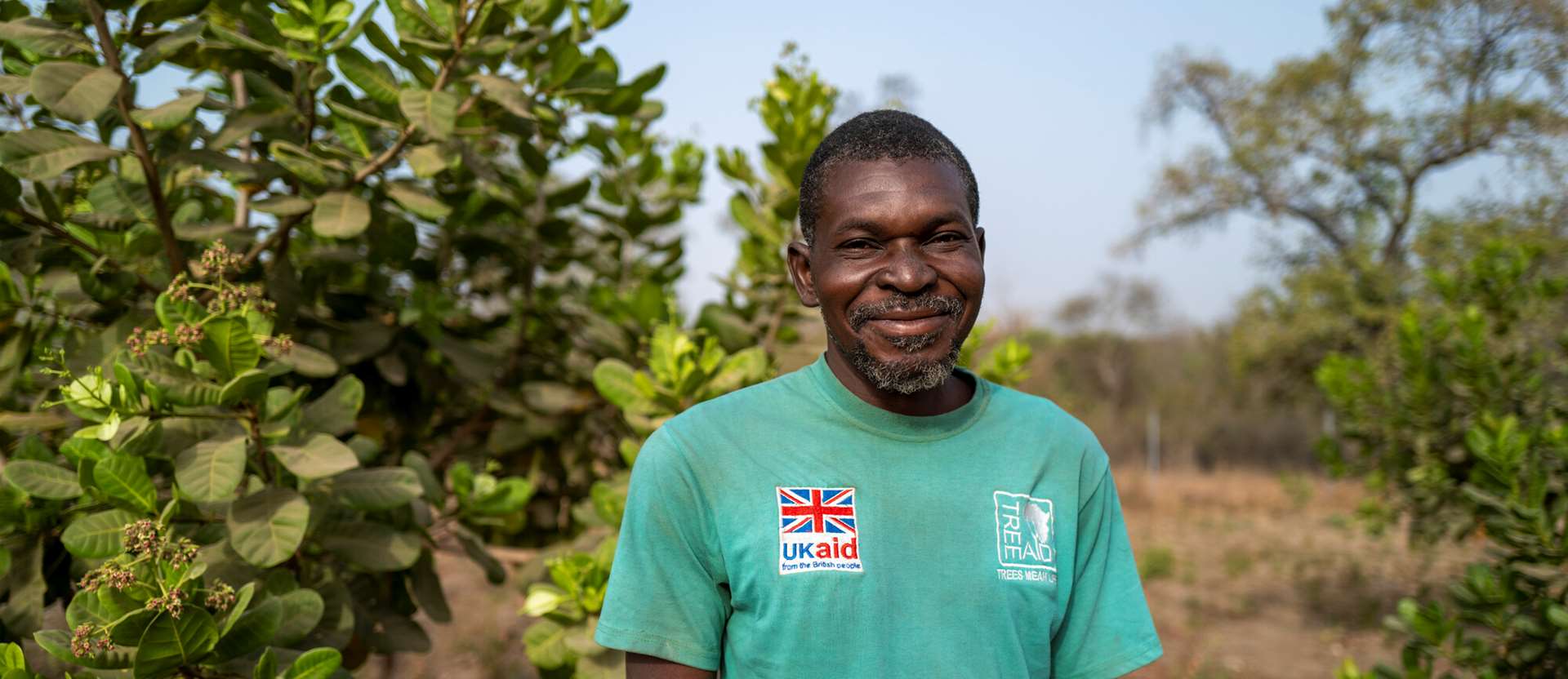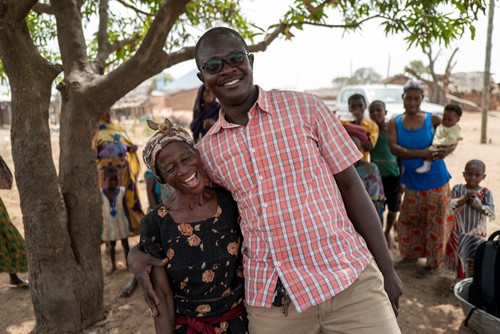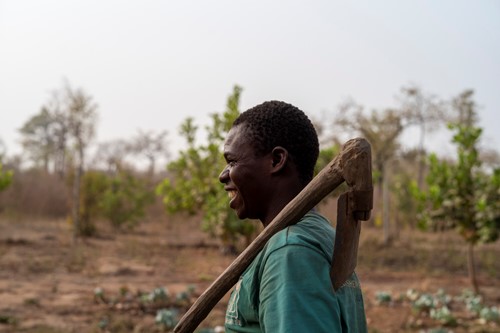
Musah's story
Growing trees and knowledge with farmers in Ghana
Meet Musah
This winter, we’re shining a light on the incredible smallholder farmers in Ghana’s West Gonja region. Together with Tree Aid, they’re future-proofing their land using climate-smart agriculture techniques, to grow trees and crops that can withstand the pressures of a changing climate.
Musah Laar is one such farmer. Since we started working with Musah three years ago, he’s broadened his agricultural knowledge to include a huge range of climate-smart techniques, from intercropping to composting. Read on to learn more about his journey…

Making ends meet in a changing climate:
Land degradation is a major issue facing farmers like Musah. It’s estimated that 35% of Ghana’s land is under threat of desertification – due to issues like deforestation and, in large part, the effects of the climate crisis. The economic impact of these changes, on farmers who contribute so little to the crisis, can be devastating.
Staple crops, like maize and millet aren’t especially drought-hardy - their shallow roots make them a high-risk and unreliable crop to grow in the region’s degraded soils. A lack of available agricultural training acts as a further barrier to many rural farmers in West Gonja – as Musah says: “we were lacking knowledge on how to plant trees, legumes, vegetables and cashews and this was directly affecting our income.”
Image: Degraded land in Ghana's Bongo region
Trees, tools and training:
This project, as with all of Tree Aid’s projects, is about much more than simply planting trees. Working with local partners, our team in Ghana help develop training that meets the needs of local farmers like Musah.
Tree Aid has 3 nurseries in 3 different communities in the West Gonja District. During the dry season, 15 volunteers attached to each nursery help to farm vegetables on the piece of land, an opportunity to learn and upskill their knowledge. Wilson Azipagrah, one of our Ghanaian project officer explains:
“In the dry season, we don’t allow the nurseries to lie bare and unused. We still cultivate vegetables until we enter the Rainy Season again, then we continue to raise more seedlings. [During this time], we train volunteers on how to put the nursery to good use by raising vegetables.
They are able to sell some of these vegetables to some of the most reputable hotels and restaurants in town... today, the nursery volunteers are equipped with knowledge and skill in grafting, raising of seedlings, planting of the seedlings, caring for the seedlings, till they are distributed to at the beneficiaries within the municipality.”

Image: Project Officer Wilson Azipagrah with participants from our cashew projects in Ghana
Starting as a volunteer at a Tree Aid nursery, Musah received climate-smart agriculture training from the Tree Aid team – he says “[Tree Aid] showed us how to interplant other crops that will help your cashew to grow well. They showed us how to make compost, how to fence a garden, how to graft... how to plant trees and many other skills.”
Following these three years of experience, Musah is now the chairman of the Sori Number One Nursery. In this role, he’s responsible for arranging ongoing training for volunteers – a long term benefit of involvement in the project:
“If there’s any skill we are lacking, I contact the field officer, and organize the members of our group so they can come and train us” - Musah Laar


Changing lives with cashews
Following the training, volunteers received cashews from the nursery to grow on their own farmland. Though Musah’s cashew trees are still young, he’s beginning to reap the reward of this new knowledge and training. As the first trees start to fruit, he’ll be able to maximise the financial benefit of a high quality cashew crop at market.
He told us: “this project has changed my life. It has helped me a lot. Now, I have a cashew farm, and they showed us how to plant the cashew, how to interplant other crops that will help your cashew to grow well”